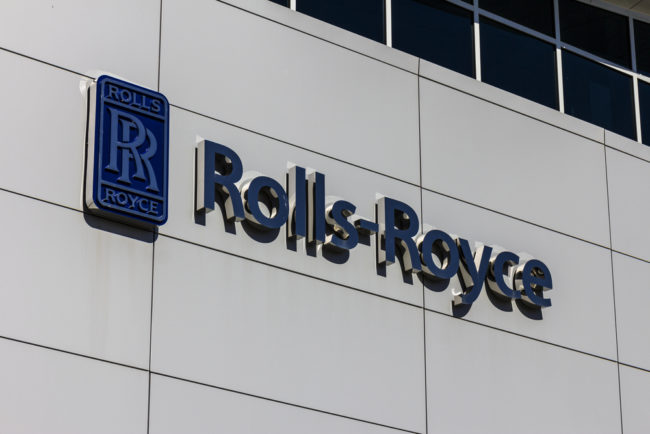Rolls-Royce, Britain’s leading multinational manufacturer, is to pay £671m in penalties after long-running investigations into claims it paid bribes to land export contracts, The Guardian reports.
The settlement means the engineering giant will avoid being prosecuted by anti-corruption investigators in the UK, US and Brazil, though individual executives may still be charged.
It comes five years after investigators across three continents first began examining claims that the £13bn multinational had paid bribes to secure contracts in countries around the world.
Last year a joint Guardian and BBC Panorama investigation identified 12 countries in which Rolls-Royce had hired “commercial agents” or advisers to help it secure high-value contracts.
Anti-corruption campaigners said the deal showed the British government was not serious about tackling bribery, despite years of rhetoric promising to make the UK a hostile environment for the corrupt.
Susan Hawley, the policy director of Corruption Watch, described the settlement as “proof the UK is not willing to prosecute a large, politically connected company”.
Robert Barrington, the executive director of Transparency International, said “there must be a prosecution of individuals” in addition to the settlement.
In deals announced on Monday, Rolls-Royce said it would pay £497m to the UK Serious Fraud Office (SFO), subject to approval by the high court. It will also pay $169m (£140m) in penalties to the US Department of Justice and $25m to the Brazilian authorities.
The terms of the agreement with the SFO are to be examined on Tuesday by Sir Brian Leveson QC, the president of the Queen’s bench division of the high court. Under the proposed deal, known as a deferred prosecution agreement (DPA), Rolls-Royce will pay the penalties over five years, along with a payment covering the SFO’s costs.
Rolls-Royce announced that it reached separate deals with the US Department of Justice and Brazilian prosecutors. It added: “These agreements relate to bribery and corruption involving intermediaries in a number of overseas markets, concerns about which the company passed to the SFO from 2012 onwards.
“These are voluntary agreements which result in the suspension of a prosecution provided that the company fulfils certain requirements, including the payment of a financial penalty.”
The anti-bribery investigations have been embarrassing for the multinational, which sells turbines and engines for passenger jets and military aircraft across the globe.
David Cameron once praised it as “a world leader in the development of advanced technologies … of which the whole country can be proud”. The Duke of Cambridge called it “one of the United Kingdom’s great global companies”.
The firm has had close relations with British governments of all political hues, while ministers have often lobbied foreign governments to give large export contracts to the manufacturer.
Without admitting any wrongdoing, Rolls-Royce has repeatedly attempted to signal its willingness to reform after the bribery allegations emerged.
In 2013 the company hired the prominent City lawyer Lord Gold to conduct a review of its anti-corruption and compliance procedures. The following year the company used its annual report to reveal that it had substantially reduced its use of third parties to help it secure contracts.
The company’s chief executive said last year that winning contracts legitimately was key to future growth. Warren East, who took the helm in 2015, said in an interview with the Guardian that the bribery scandal was “not a very desirable situation”.
Hawley said: “The extent and egregious nature of the allegations against Rolls-Royce – and the fact that all indications are that it didn’t actually self-report, but this came from a whistleblower – really raise questions about whether this is being done as a convenient form for Rolls-Royce to carry on getting public contracts.”
Companies are supposed to refer themselves to investigators in order to qualify for a deferred prosecution agreement. If convicted of corruption offences, a company can be barred from bidding for public contracts unless it were able to prove it had reformed.
A relatively recent development in British law, a DPA is an arrangement under which a company can halt investigations against it for a fine. If further wrongdoing were to be committed during the duration of the agreement, the original prosecution could be reactivated.
Barrington said: “The fine is an eye-catching size, much bigger than any previous deferred prosecution agreement. Transparency International has always that the DPA must only be used when it is in the public interest, so information needs to be put into the public domain about this investigation.
“The critical part is that there must be a prosecution of individuals. There is criminality here, and we would like to see the SFO set out a timeline for those prosecutions.”
He said he was encouraged to see Brazilian, US and British regulators working together. “It will send a shiver down the spine of bribe-payers,” he said.
Sources close to the negotiations said the SFO and Rolls-Royce attended a preliminary court hearing on Monday, with a statement being issued as the markets closed.
It is understood that the Brazilian authorities have allowed Rolls-Royce to sign a leniency agreement, which is similar to a DPA.
The SFO has had at least 30 investigators in the UK focused on the multinational’s use of agents or middlemen to clinch export contracts in a number of countries across several strands of its business.
Rolls-Royce’s sprawling organisation has customers in more than 150 countries, including more than 400 airlines and leasing customers.
The Guardian and BBC’s Panorama revealed that agents have been hired in Angola, Azerbaijan, Brazil, India, China, Indonesia, Iran, Iraq, Kazakhstan, Nigeria, Saudi Arabia and South Africa.


